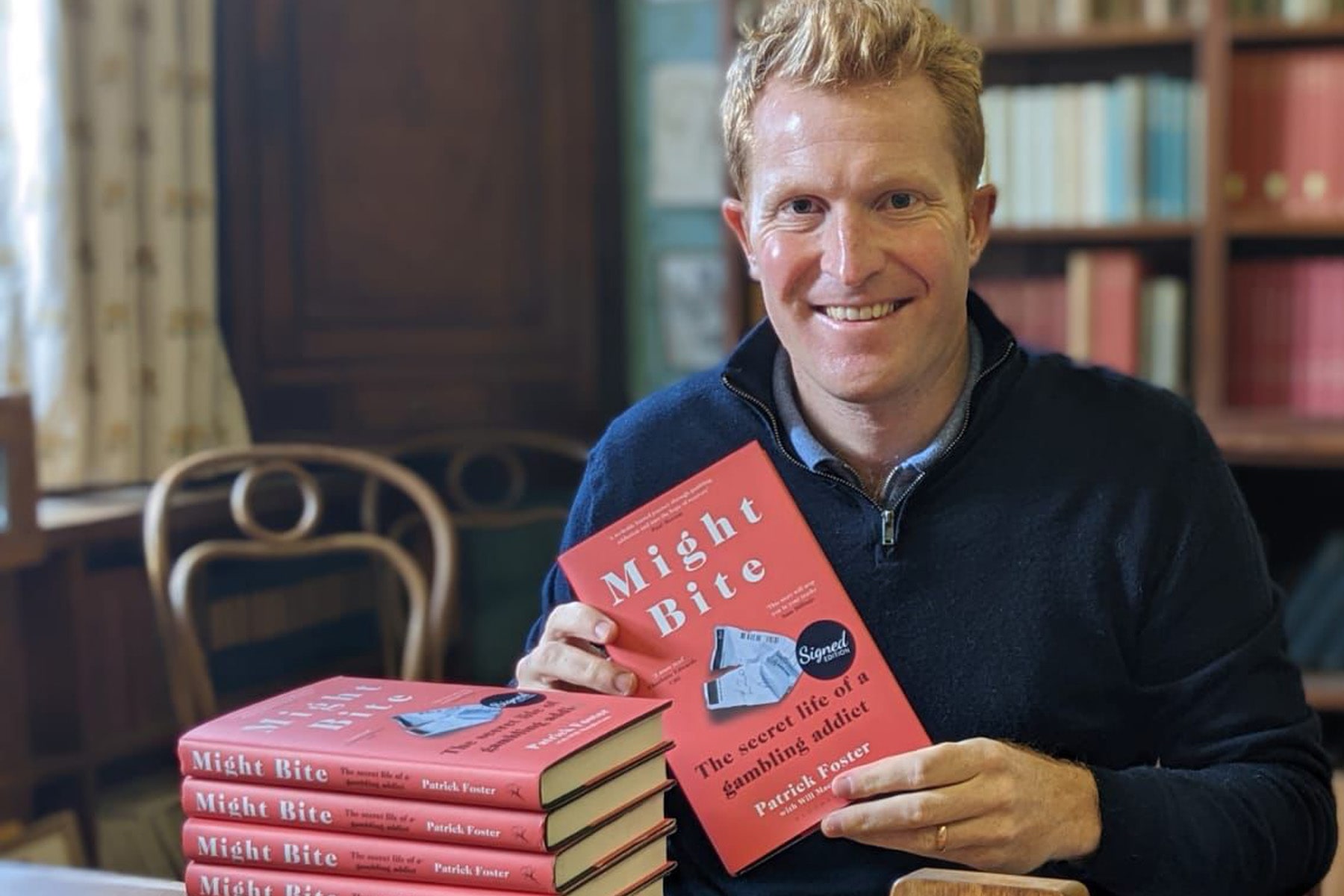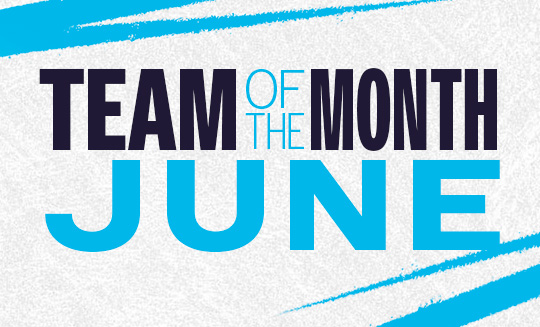PCA PRESS RELEASE
Might Bite tells harrowing yet inspiring story of addiction and recovery.
To see more articles, click here
Patrick Foster says he has been “overwhelmed and humbled” by the reaction to his recently published book, Might Bite, which tells the story of his incredible journey through gambling addiction and recovery with support from the PCA and Professional Cricketers’ Trust.
Foster, who qualified as a PCA member by making nine professional appearances between 2007-09, had the idea for the book during the first Covid-19 lockdown in 2020, and saw his ambition turn into reality when Might Bite was published on 3 February 2022.
The book chronologically tells the story of a young, ambitious professional cricketer and Durham University student who almost lost everything due to a crippling gambling addiction, and has rebuilt his life with the support of those around him since almost being driven to suicide in early 2018.
The 34-year-old spoke in-depth about his experiences shortly after the re-launch of the Trust in 2019, and he has since worked with the players’ charity and the PCA to educate athletes on the dangers of addiction through his role with gambling harm awareness consultancy EPIC Risk Management.
To coincide with the release of Might Bite, Foster recently spoke to us about his journey towards publishing his first book, the reception it has received and what the future holds…
- How did you become inspiring to write Might Bite?
- When the first lockdown began, I knew that the boredom and staying at home was going to be particularly challenging for someone like me, who is relatively early into their recovery from gambling addiction. I knew I had to find some things to keep my mind and body active – hence why I ran 1,000km in 100 days in aid of the Professional Cricketers’ Trust – and I also decided that I wanted to turn my story into a book. So I spent the first six months of lockdown either running or writing!
- Was writing a book a long-held ambition of yours?
- I’ve told my story a lot through my work with EPIC Risk Management, but I thought that producing a book would make my story accessible to anyone who wants to know about it. Having said that, I didn’t know much about the process and I also had to make sure I was in the right place mentally to actually produce the book.
- Publishing a book was always an ambition but I never knew whether it was going to actually materialise, so that lockdown moment created the perfect opportunity. I also received a lot of encouragement from people who I work with and those around me.
- How did you go about those early stages of producing the book?
- I had absolutely no experience in this area whatsoever. I’d written a blog during my time in rehab, which I had shared on social media and with family and friends, and that was really well received. I’ve always enjoyed writing so it came naturally to me, but there was no method in the madness in those early days. I just decided to put my whole story down on paper chronologically.
- The whole process was very cathartic and I ended up writing about 90,000 words in a couple of months. I had no idea about books or publishing, so I shared it with my wife and a few other people, including a very talented journalist called Will MacPherson. He told me it was an amazing story, so he took it on as a project and everything started to fall into place.
- How did you then get on board with a major publisher like Bloomsbury?
- Will really helped me out in this respect – he told me that I needed to get a literary agent and write a book proposal. David Luxton, a sports literary agent, took us on and started looking for the right publisher. That process took an awfully long time, and there was a six-month period where we were just sitting and waiting. There were times when I thought the book was never going to be published.
- At the beginning of 2021, we received the fantastic news that Bloomsbury were willing to take on the book. We worked to shape it into a book that they thought was going to sell, which was an interesting challenge because the book sits across a few genres – it’s simultaneously an autobiography, a memoir and a self-help book. But we got there in the end with a lot of hard work.
- Were certain parts of your story more difficult to put into words than others?
- When I tell my story at work with EPIC, there’s only so much I can say in a 25-minute session, so the book allowed me to go into much more detail. It was important for me to put those things down, especially the things that I find harder to talk about, and it was a really cathartic process.
- People have now become even more aware of the things that I’ve been through, and I had to revisit a lot of moments that I’m certainly not proud of, but the aim is for it to do some good in the long term.
- Did you also want to highlight the support that you received in those moments?
- The book felt like my way of saying thank you and acknowledging those people who have supported me. I wanted people to understand the impact that gambling addiction not only has on the individual, but also the people around them. People feel sorry for what I went through, but many individuals suffered as a result of my addiction and I didn’t want them to be forgotten. I wouldn’t be where I am now if it wasn’t for the support of the people around me and organisations like the PCA and the Professional Cricketers’ Trust.
- The book ends with some advice from you to the reader. Is that the key message you wanted to achieve with Might Bite?
- I wanted it to be a book that everyone could take something away from, whether they’ve never gambled in their life, had the odd bet, are a heavy gambler or a gambling addict. Or even someone who knows one of the above. I wanted it to go beyond gambling and cover mental health, vulnerability, masculinity, things that aren’t talked about enough and need to be talked about more.
- The main aim of that part of the book was to allow everyone to take something away from it and relate to it in some way. Ultimately, the biggest thing is that Might Bite could help readers who are struggling with addiction to choose the same path of recovery that I did.
"The book felt like my way of saying thank you and acknowledging those people who have supported me."
PATRICK FOSTER
- Are you pleased with how the book has been received?
- I’ve been absolutely overwhelmed and humbled. It all feels a bit surreal and the reaction I’ve had from everybody has been amazing. I’m not proud of anything that I did and I never will be, but there’s an element of pride in achieving this book, and hopefully it will make people proud of me and my recovery.
- The support I’ve had from the cricket fraternity, both at club and professional level, has been extraordinary and it just goes to show the strength of the bonds that you can build through cricket. I’ve heard from people that I played with and against 10-15 years ago, and it’s been so nice to reconnect with those people.
- What does the future hold now?
- The day job hasn’t stopped – I’m still doing my talks and presentations with EPIC and we just finished our latest programme with the PCA, which focussed on the women’s side of the game. My focus now turns to rugby and we’re doing a lot of work with the Rugby Players Association (RPA), and I’ll also be continuing my work in schools.
- Is delivering that education something that will always be extremely important to you?
- It means a lot to me in so many ways, including as a thank you to the PCA and the Trust who supported me in such an amazing way. The bond between the PCA and EPIC has never been stronger now that we have myself and Hampshire bowler Chris Wood on board. I don’t want anybody to ever go through what I did, but the connection with cricket is probably the thing that means the most to me at work.
Might Bite is available to buy now from major online retailers as well as local bookshops.
If you are affected by any of the issues in this article, our Confidential Helpline is available for PCA members 24 hours a day, 365 days a year on 07780 008 877.




















